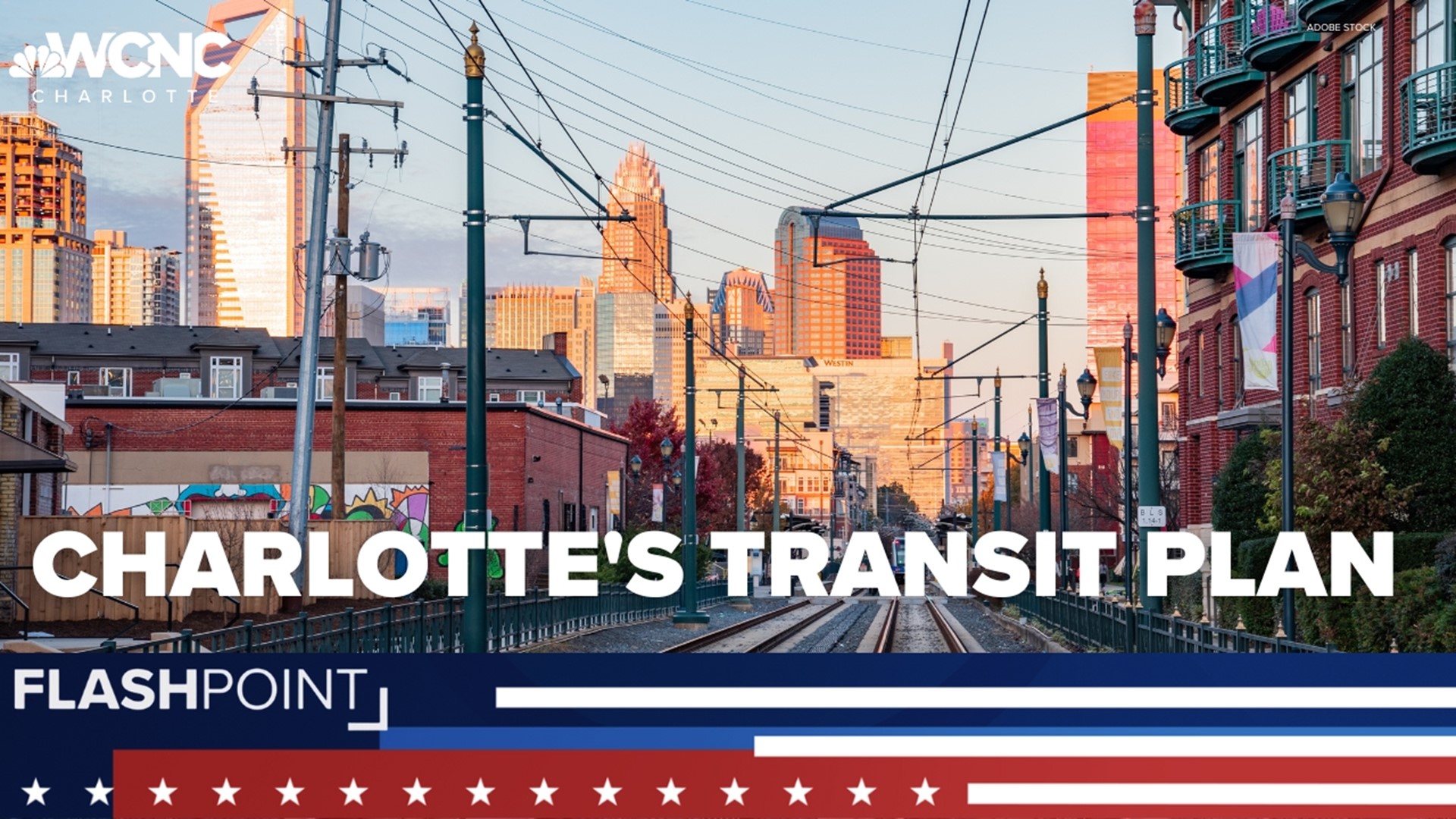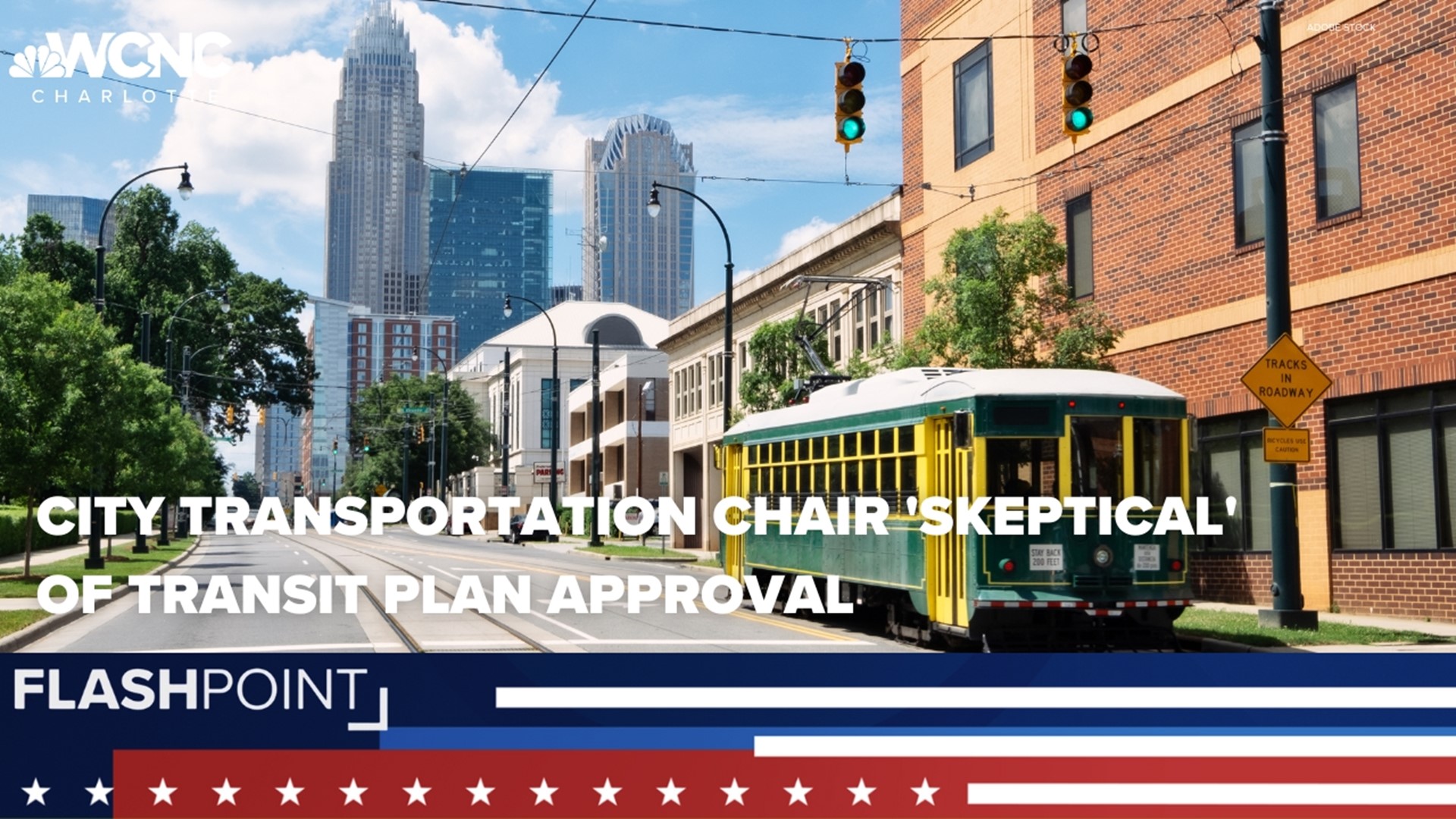CHARLOTTE, N.C. — The republican chairman of Charlotte City Council's Transportation, Planning and Development Committee is laying out his vision for how the city moves forward with its transportation plan, despite reluctance from state lawmakers.
"I think we have work to do to modify the plan in order to bring in the partners we need regionally and also to cooperate with the General Assembly on the referendum authorization that we need," Ed Driggs, city councilman, said.
MORE NEWS: Metropolitan Transit Commission votes on Silver Line route and Charlotte Transit Center design
The city's $13.5 billion transportation plan relies on a one-cent sales tax referendum, which first requires approval of the Republican-led General Assembly in Raleigh. Driggs said he's "skeptical" a referendum could be put before voters by this November, the goal of many city leaders.
"I think we really need to have a well-developed plan, we need to have commitments from our partners, the thing needs to mature a bit in my mind," Driggs said.
NC House Speaker Tim Moore has expressed reluctance against the city's transit plan, specifically it's focus on rail, buses, and bike lanes over road expansion.
"He believes that Charlotte needs a transformational investment in transportation. He wants to make that happen. But he needs to be able to see that the way a vast majority of people move today, and the congestion they feel is addressed," councilman Tariq Bokhari said, referencing Moore's preference for a "roads-first" plan.
The plan includes having 110 miles of rapid transit corridors like the light rail, 140 miles of bussing, 115 miles of a greenway system, 75 miles of a bicycle network, and more. Twenty percent of the revenue would go to non-transit allocation like roadways and greenways. The other eighty percent would go to transit projects, which include buses and the rail system.
Bokhari and Driggs see a "roads-first" plan as a solid compromise with state lawmakers.
"It's a question of sort of sequence. And I think the idea of having some low-hanging fruit that we could access in terms of investing in buses, for example, and creating some of these sidewalks and bicycle paths does make some sense," Driggs said.
In addition to state support, Driggs is also calling for a more substantive regional involvement in the transit plan.
"It will be a partnership of communities, with a governance structure, with a finance plan," Driggs said.
SEE THE FULL STORY SUNDAY AT 11 A.M. ON FLASHPOINT, ONLY ON WCNC CHARLOTTE.
Flashpoint is a weekly in-depth look at politics in Charlotte, North Carolina, South Carolina, and beyond with host Ben Thompson. Listen to the podcast weekly.
SUBSCRIBE: Apple Podcasts || Spotify || Stitcher || Google Podcasts
All of WCNC Charlotte's podcasts are free and available for both streaming and download. You can listen now on Android, iPhone, Amazon, and other internet-connected devices. Join us from North Carolina, South Carolina, or on the go anywhere.
Contact Ben Thompson at bthompson@wcnc.com and follow him on Facebook, Twitter and Instagram.


